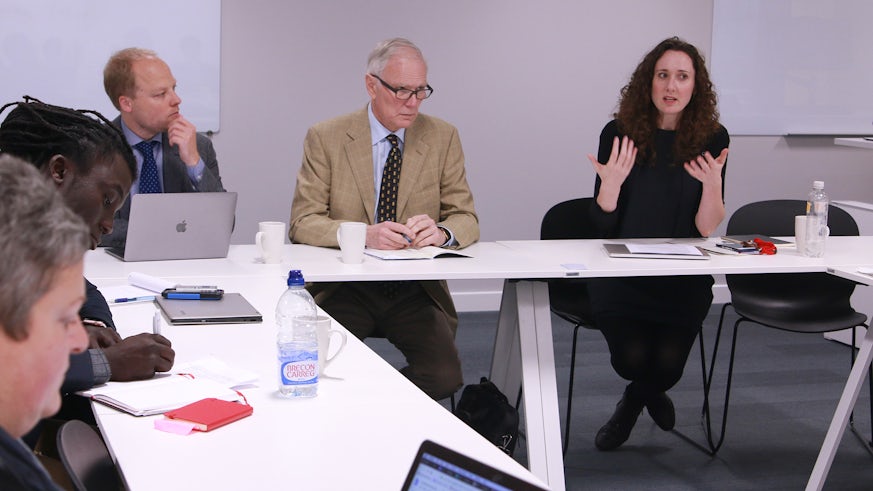Digital welfare in the UK
8 November 2018

The Data Justice Lab recently welcomed UN Special Rapporteur for extreme poverty and human rights, Professor Philip Alston, to discuss issues surrounding digital welfare in the United Kingdom.
Professor Alston is currently visiting Wales, England, Northern Ireland and Scotland at the invitation of the UK Government.
His findings will form the basis of a report to the UN Human Rights Council assessing the human rights situation for individuals experiencing poverty in the UK.
The meeting brought together professionals on the frontline and those working on poverty, welfare and citizen rights to share their concerns about the digitisation and datafication of public services.
Data Justice Lab co-director Dr Joanna Redden said, “We heard about the problems caused by universal credit and how an inability to access benefits is leading to a debt crisis as people end up depending on payday loans to get by.”
Contributors also detailed their concerns regarding how data collected about them is being shared and could potentially be used to penalize them in unanticipated ways for accessing services like foodbanks.
Dr Redden added, “A key conclusion from Professor Alston’s visit to the Lab and what we’ve found from our research is the need to have a far more nuanced debate than the one we’ve been having about new uses of predictive analytics and data systems across the public sector.
“We need a debate that moves beyond discussions of privacy to also talk about social justice, discrimination, rights, transparency, accountability and oversight.”
The meeting will also feed in to the Data Justice Lab’s own research into how data analytics is being used in the public sector in the UK, the results of which will be presented in London, later this month.

